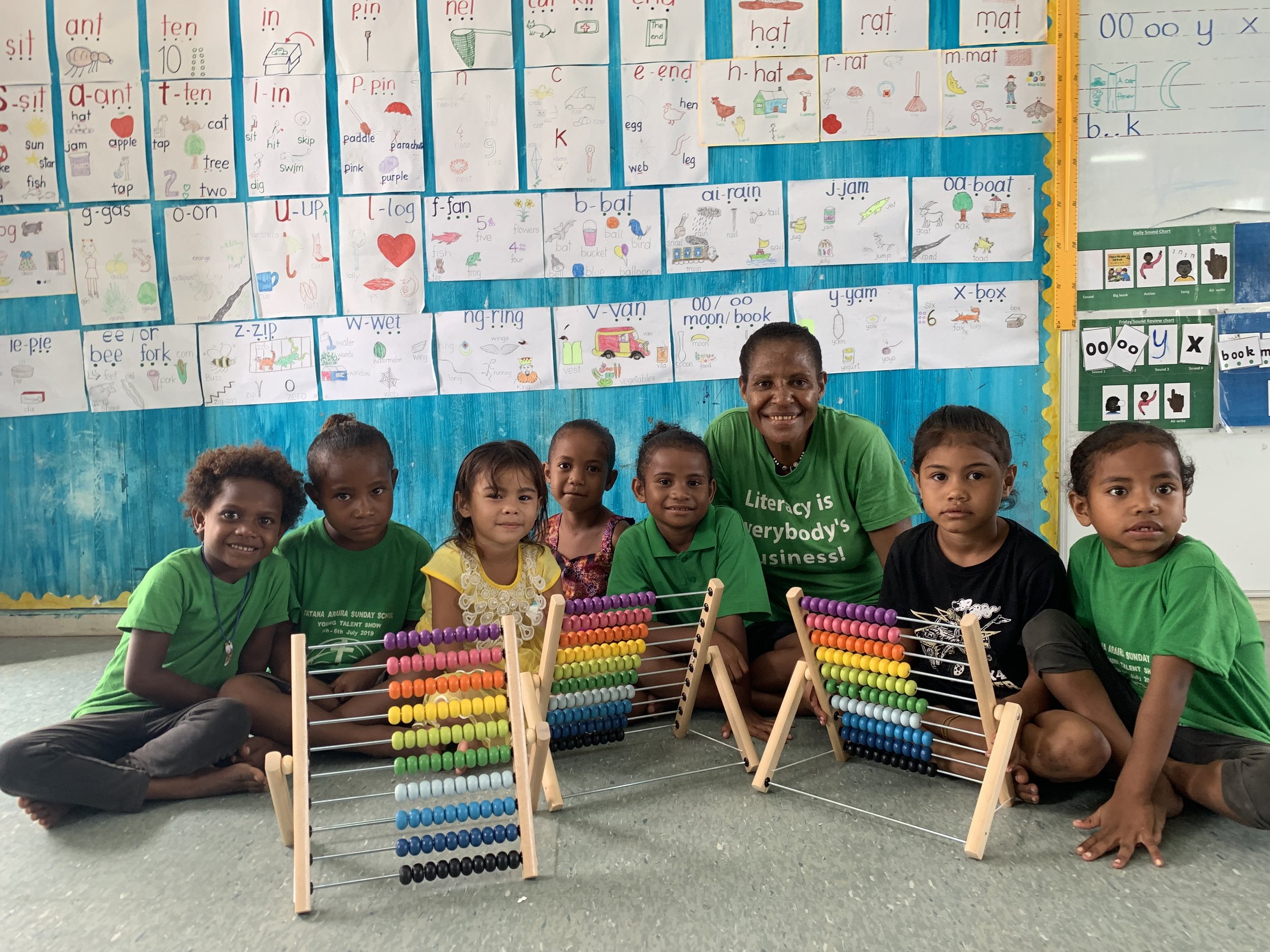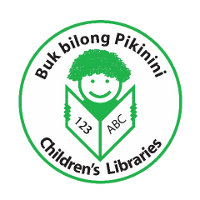
Buk bilong Pikinini roughly translates as “books for children” and was founded 2007.
Mission
Buk bilong Pikinini was founded in 2007 with a mission to help increase literacy rates in Papua New Guinea through the establishment of children’s libraries and the provision of high-quality education programs and books.
Vision
Our vision is for all children to have the right and the opportunity to an education. We envision a Papua New Guinea with an embedded literacy culture where children have access to quality teachers and materials.
Values
We are respectful and inclusive and seek to support both individual, community and cultural needs.
Map courtesy of Oxford University Press
Buk bilong Pikinini (BbP) was founded in 2007 and has since 2008 been establishing libraries with its partners to support children of Papua New Guinea with their education in order to help increase literacy rates in the country. BbP’s activities, programs and structures have evolved to suit the ever-increasing demand for quality education programs and access to books and literacy materials in the country.
BbP has been working across PNG with partners to set up children’s libraries in community-based localities. All established libraries offer a Literacy, Numeracy and Awareness program to further the organisation’s mission.
While BbP has developed its own curriculum to support five-year-old children with a holistic early childhood development program to prepare the children for school, the organisation has aligned its teaching and curriculum to suit the standards and requirements of the National Department of Education. The BbP programs are designed to be supportive of and desired by the PNG school system and teachers. It is BbP’s aim to work towards increasing its partnerships with District and Provincial Administrations through the provision of library establishment, teacher training and books in low literacy communities to ensure a more widespread application of its mission.
In BbP’s field of early childhood development, literacy and education – where to start is the obvious conundrum. Literacy rates are currently among the lowest in Pacific nations due to decades of education policy failures, which have led to under-trained and under-supported teachers, under-funded schools (classrooms and facilities are in very poor condition), lack of public and school libraries as well as a lack in general access to books and literacy materials. These conditions paired with a population boom (40% of the country’s population is under 15) make for overcrowded classrooms and overwhelmed teachers. It is common to observe a teacher to child ratio of 1:80 or 1:100) and there is no guarantee that a child will emerge literate after having gone through the school system. Very few children make it to and through high school and only the most fortunate are able to embark on university studies.
BbP’s libraries and services can be defined as:
Buk bilong Pikinini Library Learning Centre (BbP LLC): This is the traditional model, whereby BbP works with a donor to build/ renovate a space but fully manages the training, employment and operations internally. BbP currently has 18 such centres.
Buk bilong Komuniti Library – Module 1: Libraries built under the BbKL program are managed externally by the donor, who builds/maintains/operates the building and manages staff in close consultation with BbP. Under the module one program, BbP trains the staff, assists with community consultation, enrolment, provides library books, curriculum hand books, teaching resources and aids, conducts baseline and follow up tests, provides in-library training and end of year reports based on consultancy fees.
Buk bilong Komuniti Library – Module 2: Libraries can in this case be a room at a school, a small community-based operation or a public library in need or re-stocking. In order to support a community with tangible educational support, corporate partners (or other organisations) can purchase books – very often in the form of BbP’s popular School Library Re-establishment Kits and/or training under BbP’s Training for Excellence program. The training program can include the provision of curriculum hand books, teaching resources and aids (literacy and numeracy) developed by BbP.
BbP’s programs and activities can be defined as:
Early Childhood Literacy, Numeracy & Awareness program: This program is the cornerstone of BbP’s activities and is continually improved and updated. The program is offered at BbP LLCs – free of charge – to five-year-old children from families living in vulnerable communities in urban, rural and remote communities. The in-house developed program is a PNG-focused Literacy, Numeracy and Awareness Curriculum designed to prepare 5-year-old children for school. The curriculum is taught by BbP’s Teacher-Librarians, who receive annual training and are supported throughout the year via in-library training. The 5-year-old children are enrolled in February and graduate in December. They attend in 2-hour sessions every morning from Monday to Friday. The program includes teaching of English, phonics – (including BbP’s interactive phonic routines), Maths (numeracy & problem solving), general health awareness, PNG culture and educational field trips. The children are encouraged to borrow and take books home every day.
BbP is currently working to implement digital learning aspects to the program. Our teachers underwent a week-long teacher training program in 2020 and follow up training in September 2021. A digital literacy program based on the BbP learning app is being further introduced to the children in 2022.
After-School Literacy Support program & Library Services: This program is open to children of all age groups and does not require enrolment or regular attendance. BbP’s Teacher-Librarians support school children with homework tasks and provide access to the more than 3000 books and educational materials offered at all BbP LLCs.
Special needs Program: BbP has had a special needs program since 2008 to support sick and disabled children who require educational support. A special needs gentle learning program is in place at BbP’s LLC located at Port Moresby General Hospital at the HIV/AIDS, tuberculosis and malnutrition ward. BbP supports disabled children through its LLC at the Red Cross Special Education and Resource Centre and at the Vanimo Special Education Centre. BbP has published two picture books to advocate for inclusive education.
Teaching for Excellence: This program has been adapted from BbP’s internal teacher training program to suit the training of external teachers and community educators wishing to: manage a library with literacy sessions or library class, set up a library book classification system, implement child protection processes, improve teaching skills in the areas of English, phonics, classroom management, numeracy, positive behavior strategies, lesson planning and much more. (See Educational Training Programs for more detail on this.)
School library re-establishment: BbP has always made donations of books to schools and other organisations. In 2018, BbP introduced School Library Re-establishment Kits, which are sold to donors but donated to schools, to ensure the organisation is able to afford to make donations to schools in need of books and literacy materials -while ensuring BbP’s sustainability. Donating books require man power, administration and transport – all of which are not free. The kits come in three sizes: Kit 1 containing 1000 books (sold for K4000/$1850), Kit 2 containing 500 books (K2000/$925) andKit 3 containing 250 books (K1000/$460). The kits are in great demand by schools across the country, which do not have a school library or books to support the teachers and students.
BbP Book Publishing program: BbP has published eleven books and readers to date, ranging from small readers to a hardcover picture-books. The books support the BbP curriculum and also assist with providing the children with stories and images to which they can relate. Two of the titles have been developed to advocate for inclusive education for special needs children and are donated to schools to ensure the stories are discussed in the classrooms – the remaining three books are sold at various outlets. The books and stories are created in partnership with local authors, illustrators and photographers but edited and prepared for printing in partnership with a Melbourne-based children’s book publishing house.






